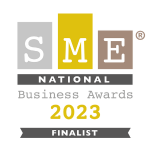NEWS AND INSIGHT
Could Industry placements be the answer to your recruitment troubles?

Recruiting has always been hard for small business owners who lack time and resource to invest in the hiring process.
Arguably it is harder since the Covid pandemic as huge numbers of the UK workforce remain signed off work with poor health or did not return to the workplace for other reasons.
To add to the strain, Brexit made it harder to recruit from our nearest neighbouring countries. So, what should we do to fill those critical positions in our growing businesses with good candidates?
We spoke to one of our longest standing SiGNAL members Stuart Elsdon who has recruited over many people into his business since he first joined SiGNAL in 2016. Stuart founded BluCan Do, an IT support firm which now employs a large workforce.
Stuart admits he has had challenges recruiting for specific technical skills. He says that everything changed for him when he found out about the Government T Levels at a talk given by Damien Hinds at the SiGNAL BiZHUB, back in 2022.
Stuart says -
“BluCan Do has really benefited from being a part of this scheme. We have had eight T level students on industry placement within the company so far, more than any other business in the Southeast. Four of them have now been offered full time jobs with us! This is a great way to contribute to the education of the next generation while at the same time recruiting skilled young people with minimum financial risk.”
So, what are T levels exactly?
T levels are Level 3 qualifications that follow on from GCSEs. Students will study one T level over two years of full-time study, and this is equivalent to 3 A levels.
Students choosing to study T levels will be studying a technical pathway focusing on vocational skills with an industry placement.
Both T Level and A Level pathways can lead to university study, so you can apply for a degree with one T level or three A levels.
Industry placements are at the heart of T Levels. This is where business can help play a part in the education of the next generation of workers while at the same time nurturing potential new recruits.
The core principles of the industry placement are that it should:
- Be with an employer
- Take place in person in the workplace
- Be in line with the normal requirements of the industry
- Enable the student to develop up-to-date knowledge and skills
- Last a minimum of 315 hours
There are many different delivery approaches that can be used alongside these core principles. These make it easier for businesses to design T level placements that suit both their own needs and the needs of the student. For example.
· The student can spend up to a third of their placement hours doing a project with other students outside the workplace, under the supervision of an employer and at an external location.
· A student can split their placement hours across a maximum of 2 employers to help gain a breadth of experience.
The aim of these various approaches is to make sure that as the number of students choosing T Levels grows, employers can continue to provide enough high-quality placements for all students across the country and in all industries.
Stuart says -
“Working with the T level scheme for employers has really boosted my business and I have really enjoyed the process. Recruitment is one of the most challenging aspects of any business, particularly when you need technical skillsets.
If anyone else has a technical business that needs to hire and train for specific skill sets, I really recommend finding out more about this scheme”.
I’ve been collaborating with two other members of the SiGNAL BiZHUB, Sarah Bass, founder of Oraculum Recruitment and Sarah Burch of SB Consultancy to make this process as efficient as possible and I’ve really valued their insights and support. I recommend contacting them if you need any assistance with the process.
Interested?
Stuart is coming to the SiGNAL BiZHUB on 27 September in Bordon to tell us more about his experiences with Industry Placements and Hiring through T L:evels.
If you’d like to come along and ask questions please below.







